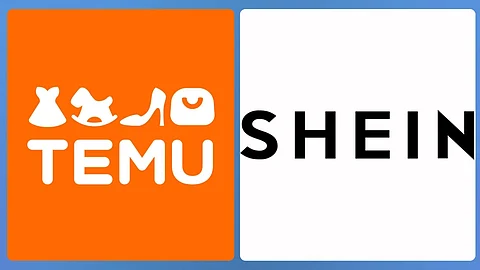
- NEWS
- the EDIT
- COMMENTARY
- BUSINESS
- LIFE
- SHOW
- ACTION
- GLOBAL GOALS
- SNAPS
- DYARYO TIRADA
- MORE

American shoppers are beginning to see price hikes on budget-friendly platforms Temu and Shein, as both retailers respond to upcoming changes in U.S. trade policy targeting Chinese imports.
On 25 April, the two companies adjusted prices on various items ahead of the 2 May removal of the “de minimis” rule—a long-standing exemption that allowed goods under $800 to enter the U.S. without tariffs. The rule’s repeal stems from an executive order recently signed by former President Donald Trump as part of intensified trade restrictions on China.
Under the new framework, incoming packages from China will be subject to either a steep 120% tariff or a flat $100 fee per shipment—set to rise to $200 by 1 June. These changes directly affect retailers like Temu and Shein, which depend on low-cost, direct-to-consumer shipping from Chinese suppliers.
While neither company detailed specific price increases, consumers quickly noticed the difference. A patio chair on Temu reportedly jumped from around $61 to $70 overnight. A swimsuit set on Shein, once priced at $4.39, was listed the next day for $8.39. Some items, however, showed price drops—likely due to regular algorithmic price adjustments rather than policy-related shifts.
The loss of the de minimis benefit removes a key cost-saving advantage for Shein and Temu, placing pressure on them to absorb new expenses or pass them on to customers while maintaining their value-driven appeal.
Temu, which operates under Chinese parent company Pinduoduo, markets an extensive array of discounted items from tech gadgets to homeware. Shein, a powerhouse in the fast-fashion space, is known for trendy apparel at ultra-low prices and has a large user base in the United States.
These pricing changes come amid a larger trade conflict. Trump’s “Liberation Day” initiative raised tariffs on many Chinese goods, some as high as 145%. China retaliated with its own 125% tariffs on American imports, escalating tensions between the two global powers.
Despite claims of ongoing dialogue between U.S. and Chinese officials, conflicting statements have emerged from both sides, casting doubt on the status of negotiations.
Major brands beyond Shein and Temu—including Best Buy, AutoZone, and Nintendo—are also expected to raise prices as the new tariffs take hold. With these developments, the days of consistently cheap online deals from China may be numbered for American consumers.
